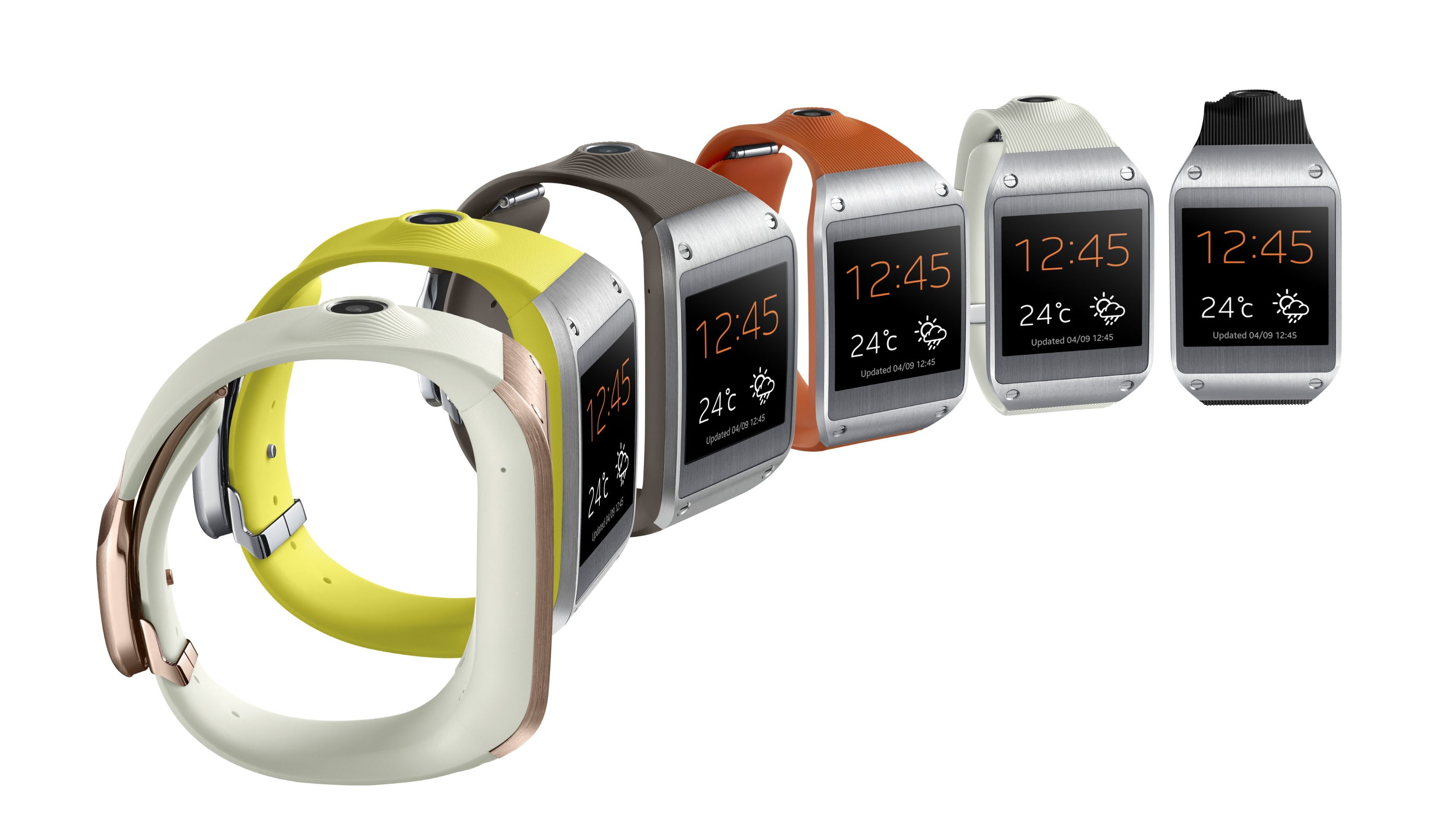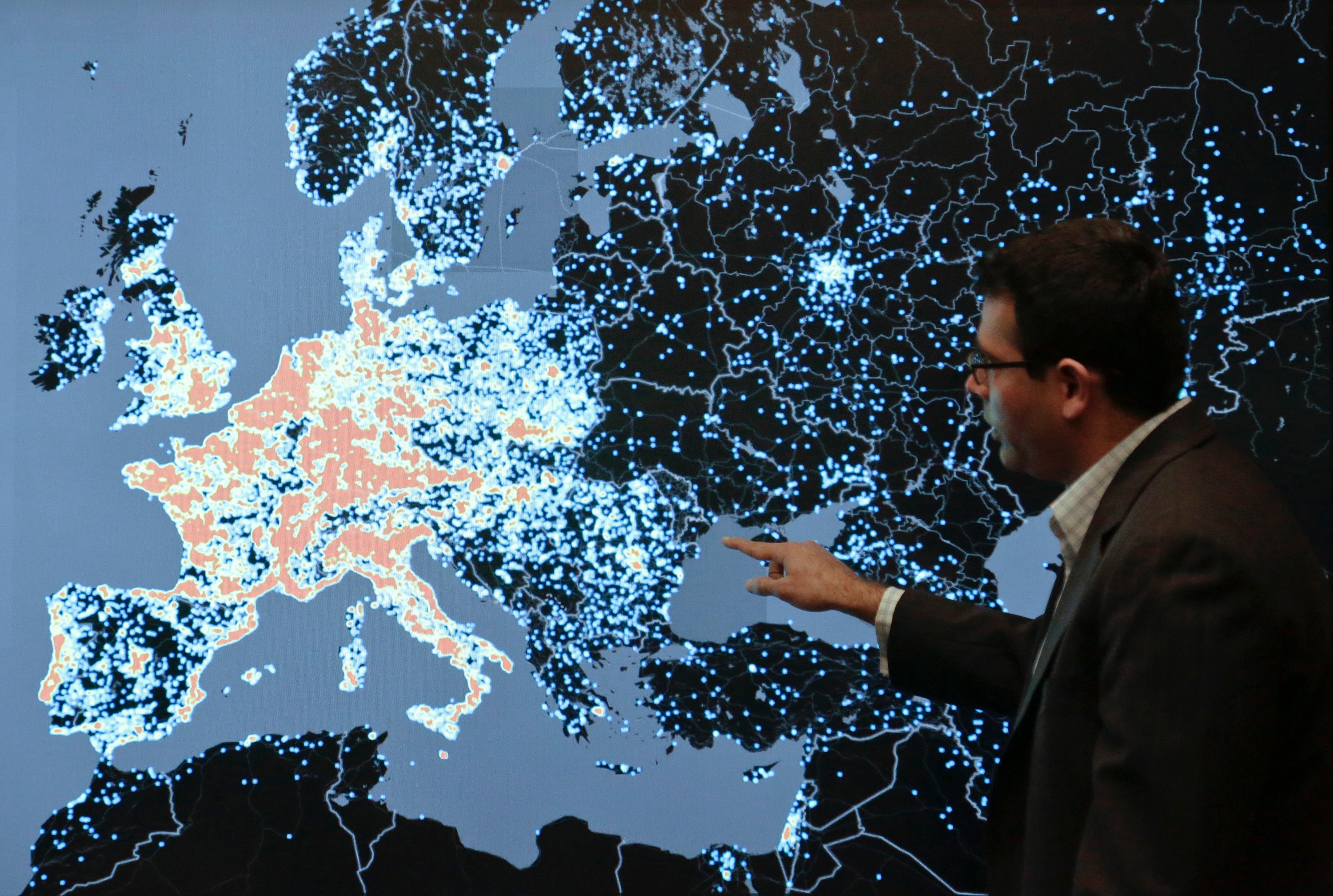After a blah 2013, New Year brings clearer images on future of technology
From wearable technology to Google getting robots, we take a look at the areas of technology to watch over the coming year

Your support helps us to tell the story
From reproductive rights to climate change to Big Tech, The Independent is on the ground when the story is developing. Whether it's investigating the financials of Elon Musk's pro-Trump PAC or producing our latest documentary, 'The A Word', which shines a light on the American women fighting for reproductive rights, we know how important it is to parse out the facts from the messaging.
At such a critical moment in US history, we need reporters on the ground. Your donation allows us to keep sending journalists to speak to both sides of the story.
The Independent is trusted by Americans across the entire political spectrum. And unlike many other quality news outlets, we choose not to lock Americans out of our reporting and analysis with paywalls. We believe quality journalism should be available to everyone, paid for by those who can afford it.
Your support makes all the difference.Tech enthusiasts didn't have much to cheer about in 2013.
There wasn't a lot of jaw-dropping or game-changing technology introduced. Instead, it was a year in which old guard companies, such as BlackBerry, Microsoft and Intel, struggled to remain relevant, set new goals and looked for new leadership. Newer companies, such as Facebook and Twitter, matured — at least enough to make some money — but still haven't proved they have a long-term business plan.
And it was a year that brought questions about consumer privacy and security to the forefront, with high-profile data breaches and revelations about surveillance programs at the National Security Agency.
In short, 2013 was a year that raised a lot of questions but provided few answers. Analysts say 2014 could be when the rough sketches about the future of technology, and how it affects our lives, get fleshed out.
Here are the areas of tech to watch in 2014:
Wearables:
Technology has become a part of our daily lives, but 2013 showed the promise of what could happen if it becomes part of our bodies.
From our socks to our glasses, tech companies have found ways to add sensors to everyday items that turned them into mini computers. Fitness trackers and Samsung's Galaxy Gear smartwatch, which can take photos and answer phone calls, showed consumers the potential of wearables.
Companies are "increasingly putting consumers at the center of a host of digital technologies, devices and services," said John Curran, a managing director at Accenture.

And there's far more expected in the pipeline. The Google Glass headset, which pushes users' smartphone alerts to a screen hovering just above a user's eye, is expected to see a wide consumer release in 2014.
Analysts also expect Apple, which has yet to offer even a whisper about a wearable device, to release a smartwatch of its own sometime this year.
Analysts say that the market is already a billion-dollar industry and is on pace to hit $6 billion to $8 billion by 2018.
But tech developers' ability to collect a range of personal data about users — your heartbeat, eating habits and location — has some privacy advocates concerned. The Federal Trade Commission has scheduled a February workshop to examine how companies and consumers can deal with the influx of data being held by these companies.
Different forms:
Consumers can also expect some of their high-end devices to change form in 2014 with the wider introduction of curved screens for smartphones and televisions.
Tech companies have been studying how to curve screens for years and now appear ready to introduce it more widely to the public, said Raymond Soneira, president of DisplayMate Technologies, which tests and calibrates screens.

Samsung and LG have both already announced that their largest TVs will have a bit of a bend in them, and some firms are considering curved or flexible screens for smartphones that would fit more naturally against a users face. Screens can also be curved so that they perform better in direct light, said Soneira.
But manufacturing these new screens is a costly process, Soneira said. While consumers will see more of them in 2014, they'll probably stay confined to high-end or specialty products, he said. "They'll make a major technical statement in 2014, but not a major consumer statement," he said.
Flying above:
Flying drones and advanced robots will generate a lot of buzz in 2014, but probably won't be in every home by the end of the year.
Google and Amazon.com invested heavily in the development of unmanned aircraft and robots this year, raising expectations for 2014.
Google's purchase of Boston Dynamics, best known for making robots for the Defense Department, raised expectations the tech giant would develop robots for a mainstream audience. Their robots can carry heavy loads even on bumpy terrain.

Amazon says it is planning to use drones to deliver some packages within 30 minutes of being ordered online.
But commercially produced drones will face a few more roadblocks before they take to the skies. The Federal Aviation Administration announced Monday that it selected six states to test unmanned aircraft system, but it's unclear when drones will have easy access to the nation's airspace.
Companies to watch:
Microsoft endured a tumultuous 2013, including the continued deterioration of the PC market and the retirement of longtime chief executive Steve Ballmer.
Now all eyes are on the company as it attempts to find its footing.
"Their successes are overwhelmed by their failures," said Rob Enderle, technology analyst for the Enderle Group. "They do need to simplify the company. They're fighting too many battles and they need to bring it back to something that can be managed."
Twitter, on the other hand, has the opposite problem — the social media company needs to grow, and grow quickly. Fresh off its 2013 market debut, the six-year-old company can boast that 18 percent of all Americans have an account on the service, according to data from the Pew Center for Internet and American Life.

And though Twitter must focus on aggressive growth to satisfy investors, it also has to be careful not to lose its scrappy start-up vibe, particularly as it faces competition from an ever-growing wave of new messaging services such as Snapchat, which lets users send private messages that erase themselves after 10 seconds.
Watch your back:
Cybercrime is expected to become even more common in 2014, posing a tricky challenge for tech companies and retailers encouraging consumers to share information online.
Most recently, hackers gained access to as many as 40 million credit and debit cards used by customers of Target during the height of the holiday shopping season, and analysts say that breach was only the tip of the iceberg.
Data breaches jumped from about 1,700 incidents in 2012 to 2,200 in 2013, according to an end-of-the-year report from financial information services firm Experian. The firm forecast that at least two-thirds of companies will buy cyber-breach insurance by the end of 2014. Many of those, the report said, will be in health-care sector as more doctors and hospitals put their data in online databases.

One in four Americans has received at least one notice of a data breach, said Michael Bruemmer, vice president of data breach resolution at Experian's consumer services unit. That's led to apathy from some consumers who are tired of changing their passwords and canceling their credit cards — a trend that Bruemmer calls "data breach fatigue."
But not all consumers are taking the growing number of breaches lying down; Bruemmer said that there's also been a spike in lawsuits against companies whose systems are cracked into by cybercriminals.
"There's been a corresponding increase in class-action lawsuits, and I think you'll see that into 2014," he said.
(c) 2014, The Washington Post; Amazon.com chief executive Jeffrey P. Bezos owns The Washington Post.
Join our commenting forum
Join thought-provoking conversations, follow other Independent readers and see their replies
Comments